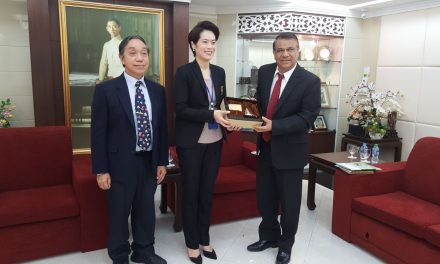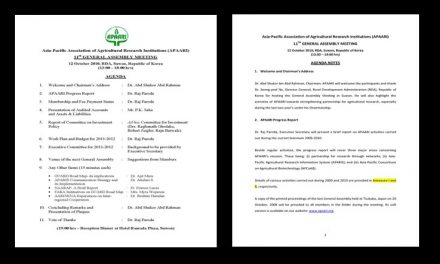International Webinar on Agribiotech Innovation and Commercialization for Sustainable Development Amity Institute of Biotechnology, Amity University Uttar Pradesh in Association with BCIL, New Delhi
4 December 2020 – 3.30 – 5.00 PM (India time)
Register here: https://amityuni.live/89878322829
Concept: Agribiotech Interventions for Sustainable Development in Asia-Pacific Countries
The agricultural biotechnology (Agribiotech) has the potential to change the lives of smallholder farmers and can significantly contribute in achieving Sustainable Development Goals (SDGs) of the United Nations. Technologies are available for increased production, long-term protection from disease, resource use efficiency for feed, energy, and land especially in marginal agricultural zones with more efficient farming systems that are relevant to crops, fish and other aquaculture, microbes, agroecology, poultry, animals etc. However, the benefits of these technologies are not reaped in several developing and under-developed regions for various reasons including lack of awareness among public and policymakers. Often biotechnology is equated with Genetically Modified (GM) crops, more specifically Bt crops, to the disadvantage of this branch of science to serve the communities particularly smallholder farmers.
A policy brief on “Realizing the potential of agricultural biotechnology in the Asia-Pacific region” which is a brief summary of “The status of application, capacities and the enabling environment for agricultural biotechnologies in the Asia-Pacific region” was conducted recently by FAO RAP in 2019. It gives an overview of the regional situation in terms of biotechnology application and capacity and what has to be done. The ministers and leaders of Asia Pacific Economic Cooperation (APEC) also recognize how important it is to make sure that the agribiotech products are safe. The APEC High-Level Policy Dialogue on Agricultural Biotechnology (HLPDAB) is a recognition of this. Through the HLPDAB, policymakers develop regulatory frameworks, facilitate technology transfers, encourage investment and strengthen public confidence in biotechnology in order to increase agricultural productivity and to protect the environment, with the ultimate objective of promoting food security.
Favorable policy environment and institutional frameworks are essential for promoting innovation, investment, and commercialization of biotechnologies. Some countries in the Asia-Pacific have established focused policy and institutional frameworks to support their biotechnology sectors. Prominent examples are Malaysia, China, Japan, the Philippines, India, and Korea.
Agribiotech provides immense opportunities for enterprises to become part of the global value chain. It is also important to leverage on collaborations and partnerships with domestic, regional, and international players for successful commercialization of biotechnology innovations. One of the major driving forces to promote biotechnology in the Asia-Pacific Region is to understand the immense scope of partnerships across the countries, organizations, and different sectors of agriculture and to develop capacities to innovate at various levels. APAARI is playing its modest role of facilitation and in blending technical and functional capacities in the region through its programmes and projects.




